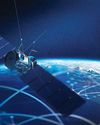
As technology evolves, sectors beyond automotive-such as utilities, healthcare, manufacturing, have and logistics recognised the advantages of eSIM technology. eSIM machine-to-machine (M2M) technology has transformed vehicle communication by simplifying logistical operations and allowing Original Equipment Manufacturers (OEMs) to change connectivity providers even after their products have been delivered. This adaptability enhances operational efficiency and ensures long-term connectivity for automotive manufacturers.
However, the complexity of eSIM M2M architecture has limited its successful deployments outside automotive, leading to the development of the eSIM loT (Internet of Things) specification. The eSIM IoT specification maximises the reuse of existing architectures from eSIM Consumer, a variant connecting millions of smartphones, smartwatches, and tablets. Because eSIM IoT targets a variety of device types, it adopts functionalities from eSIM M2M while adding new capabilities that were absent in previous specifications.
eSIM management relies on Local Profile Assistant (LPA) functionality for for consumer devices like smartphones and smartwatches. The loT Profile Assistant (IPA) concept was developed to replicate this functionality in the loT space, with a specific variant, IPA embedded or IPAe, gaining importance because of its potential to simplify loT device management within the automotive industry and beyond.
THE FOUNDATIONS OF IPA
This story is from the November 2024 edition of Voice and Data.
Start your 7-day Magzter GOLD free trial to access thousands of curated premium stories, and 9,000+ magazines and newspapers.
Already a subscriber ? Sign In
This story is from the November 2024 edition of Voice and Data.
Start your 7-day Magzter GOLD free trial to access thousands of curated premium stories, and 9,000+ magazines and newspapers.
Already a subscriber? Sign In

Cloud endoscopy breakthrough for real-time remote diagnostics
NTT Corporation and Olympus Corporation have demonstrated the feasibility of real-time remote diagnosis and treatment using the world's first endoscopy system powered by IOWN All Photonics Network (APN) technology. The breakthrough experiment successfully processed endoscopic videos on a server located 150 km away, overcoming latency issues and enabling seamless diagnostics.

Rise of the homegrown telecom infrastructure
Telecom infrastructure, once led by US and European designs and made in China, iS Now increasingly designed and manufactured in India, marking a pivotal shift

Balancing innovation and regulation for a connected future
Crafting agile governance ensures equitable, sustainable growth, blending innovation with societal protection in a hyper-connected digital age

Driving transformative shifts towards digital leadership
India's telecom sector, driven by 5G, bold policies, and cross-sector collaborations, is paving the way to global digital infrastructure leadership

Scaling AI in data centres for the next big leap
GPU-optimised data centres are vital for advancing India’s Al ambitions, enabling it to meet growing computational demands and maintaining global competitiveness

Bridging gaps with AI's transformative communication wave
AI-driven real-time communication reshapes industries, enhancing connections, operational efficiency, and immersive experiences in a digital-first world

Weaving the fabric of CDN efficiency
Local peering transforms CDNs by cutting latency, boosting reliability, and ensuring seamless, high-speed delivery for modern digital experiences

From orbit to opportunity: Redefining connectivity
India's satcom sector is set to revolutionise connectivity through hybrid networks, bridging the digital divide and driving innovative technologies for growth

Orchestrating telecom's smart future
AI and automation can revolutionise telecom networks, crafting intelligent, selfoptimising systems to meet future demands and deliver seamless connectivity

Unlocking the true potential of IoT
Specialised silicon and 5G are set to redefine loT's future, driving AloT innovations that deliver real-time intelligence, security, and seamless connectivity